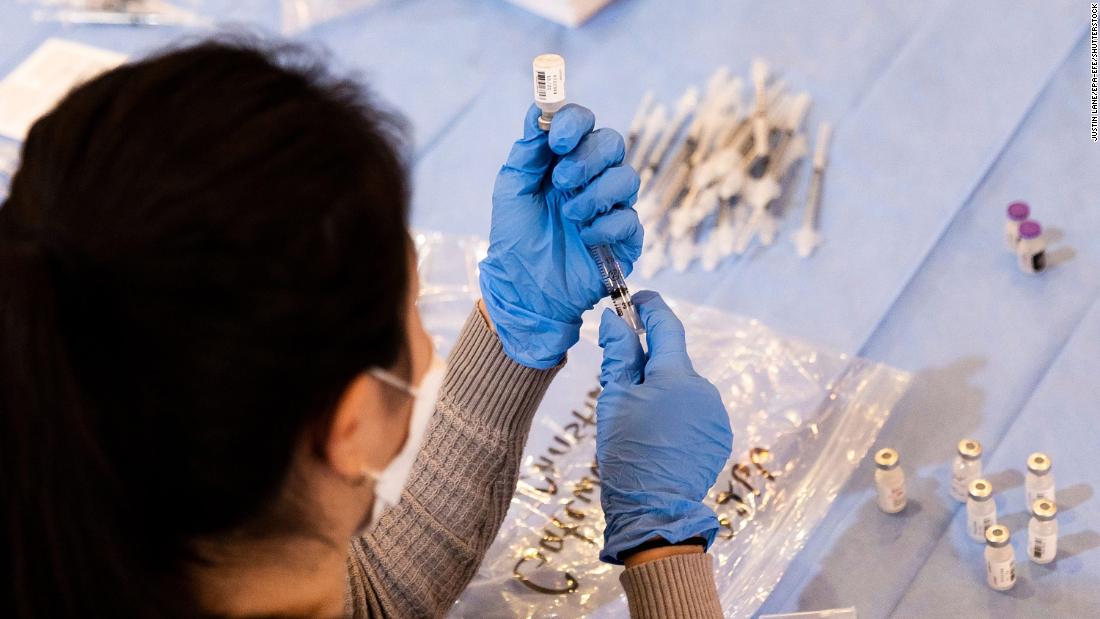Several experts predicted on Tuesday that the highly contagious variant B.1.1.7 that was first detected in the UK is likely to fuel another increase in cases in just a few weeks.
“This could result in more waves in, say, April or May than we would otherwise expect,” said Trevor Bedford of the University of Washington and the Fred Hutchinson Cancer Research Center, during a conference sponsored by the center. “But I still suspect that things will be under control in the summer and there will be very few viruses circulating.”
The expected increase is the reason why many experts highlighted the need to double security measures such as face masks, social distance and avoid crowded areas. Helping to reduce cases will also give the virus less chance of spreading further and mutating, experts said.
Vaccinating as many people as possible will also be a big help in slowing new outbreaks – but Dr. Josh Schiffer, an infectious disease specialist at Fred Hutchinson, said the new infectious variants make it “difficult to prevent a fourth wave altogether.”
The group called on vaccine consultants from the Food and Drug Administration and the Centers for Disease Control and Prevention to be called quickly and to determine whether the data supports the group’s recommendations, including postponing the second dose of the vaccine after the next increase.
“There is a narrow and rapidly closing window of opportunity to use vaccines more effectively and potentially prevent thousands of serious cases, hospitalizations and deaths in the coming weeks and months,” the report said.
Officials, including Dr. Anthony Fauci, said in the past few days that the United States continues to vaccinate people at both doses and close to the recommended times, with Fauci telling CNN earlier this week, “science points directly to continue with what we know about the clinical trial. “
Initial research raises concern about the variant in California
So far, more than 1,900 cases of coronavirus strains first detected in the United Kingdom, South Africa and Brazil have been reported in the United States, the CDC data show.
Meanwhile, two studies that are due out soon also raise concerns about the impact of the variant in California.
Studies suggest that the variant may not only be more contagious, but also cause more serious illnesses. But the research is in its early stages, has not been published or peer-reviewed and needs more work, the researchers emphasized.
A team from the University of California, San Francisco, tested virus samples from recent outbreaks across the state and found it was becoming much more common: although it was not seen in any September sample, it was found in late January at half of the samples.
The researchers also found some evidence to suggest that the variant is more dangerous, writing in a report that they observed “increased severity of the disease” associated with the variant, including “increased risk of high oxygen demand”.
A second team from Unidos en Salud – a volunteer-led collaboration between UC San Francisco and other groups offering rapid Covid-19 tests in the San Francisco Mission District – tested more than 8,800 people in January and sequenced the virus from more than 630 positive samples. They also found a rapid increase in the variant.
The FDA may approve the storage of the Pfizer vaccine in standard temps
Concerned about the variants, US officials continue to work to increase vaccination.
Pfizer and its partner BioNTech sent data to the FDA on Friday showing that their vaccine can be safely stored at temperatures higher than those currently required for long-term storage. The Times cited two sources familiar with the companies, who requested anonymity, saying the FDA had informed companies that it would approve that request.
The move could make logistics much easier not only for companies, but for the federal government, states and other groups that have been working to distribute these vaccines.
In California, officials said it will make changes to Covid-19’s vaccine naming system across the state after the access codes distributed to underserved communities are used by strangers to secure vaccines.
Recent data show that black and Latino residents collectively received 19% of the state’s vaccine doses, while accounting for nearly 60% of Covid-19 cases in California. In contrast, White residents received 32.7% of the vaccine doses, while representing about 20% of the state’s cases.
CNN’s Maggie Fox, Sarah Moon, Cheri Mossburg, Amanda Sealy and Michael Nedelman contributed to this report.
